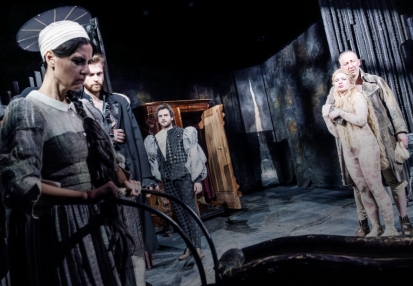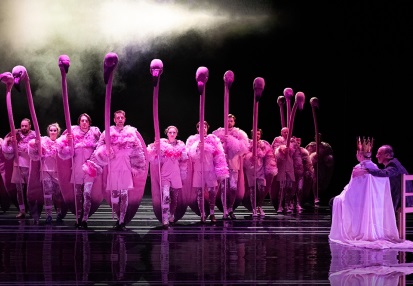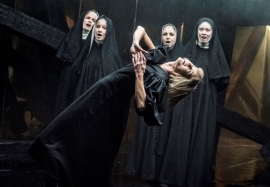„Krakowiacy i Górale” Bogusławskiego – wykład Marcina Króla
– wykład z cyklu Linia czasu. Teatr Narodowy wobec epok i wyzwań
Na scenach Teatru Narodowego w ciągu 250 lat jego historii odbyło się wiele istotnych premier. Istotnych pod wieloma względami: miały one wagę artystyczną, intelektualną, społeczną i polityczną. W roku jubileuszowym proponujemy wykłady, w których wybitni polscy intelektualiści podejmują tematy wywiedzione z najważniejszych dokonań Teatru Narodowego.
Marcin Król: „W momentach przełomowych podnosi się kwestie fundamentalne. W związku z Krakowiakami i Góralami możemy rozważać problem niepodległości. Jaki wysiłek jest niezbędny dla jej uzyskania i utrzymania? Problem równości społecznej – czy każda zgoda i każda forma spokoju społecznego są równoznaczne z braterstwem? I wreszcie problem rewolucji – kiedy jest dopuszczalna i kiedy jest niezbędna. Czy rewolucja jest zawsze lewicowa? Co w Polsce znaczyła i dzisiaj znaczy rewolucja?”
Marcin Król – filozof polityki i historyk idei, profesor nauk humanistycznych, wykładowca Uniwersytetu Warszawskiego, publicysta, wieloletni redaktor naczelny pisma „Res Publica Nova”. W ostatnich latach opublikował: Europa w obliczu końca (2012), Klęska rozumu: kulisy najważniejszych wydarzeń w historii najnowszej (2013), Wielcy władcy (2014), Byliśmy głupi (2015), Pora na demokrację (2015).
Na zdjęciu: scena zbiorowa z Cudu mniemanego, czyli Krakowiaków i Górali Wojciecha Bogusławskiego i Jana Stefaniego w reżyserii Leona Schillera. Premiera w Teatrze Narodowym 30 kwietnia 1950. Fot. Edward Hartwig / Archiwum Artystyczne Teatru Narodowego
Pełen program wykładów z cyklu Linia czasu. Teatr Narodowy wobec epok i wyzwań →






























